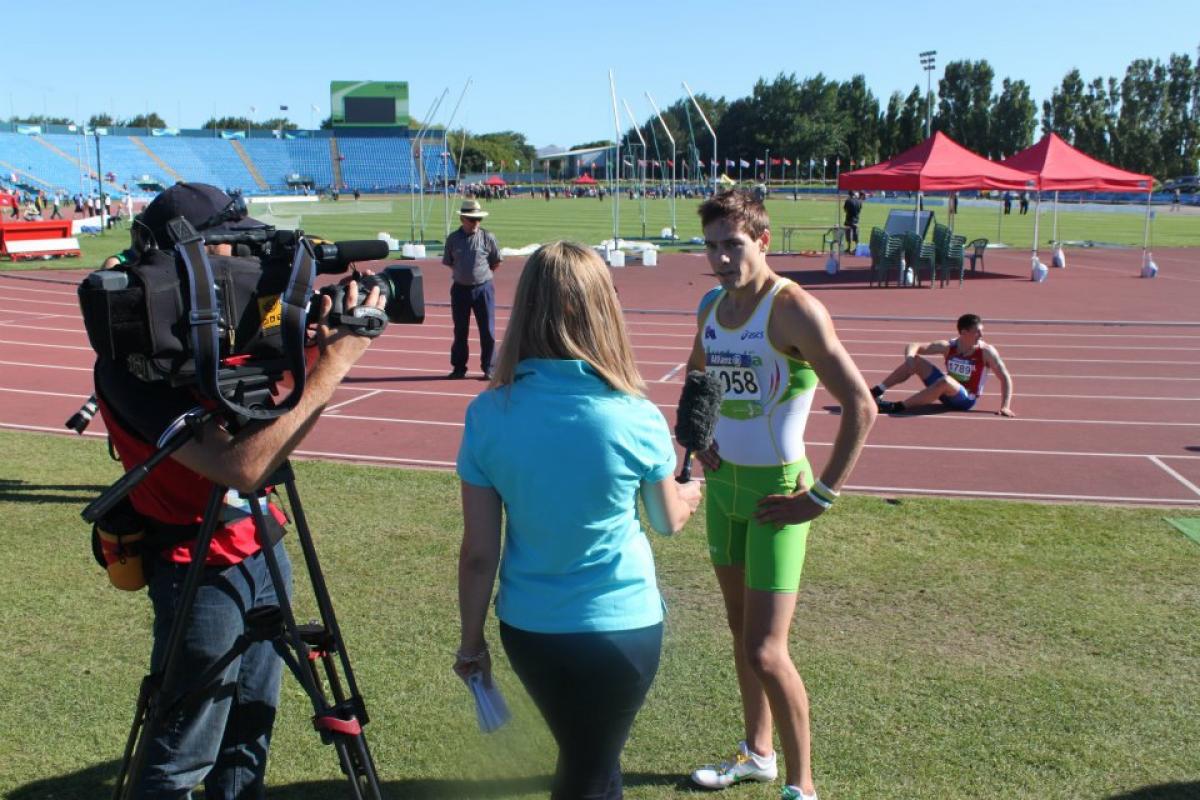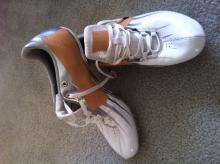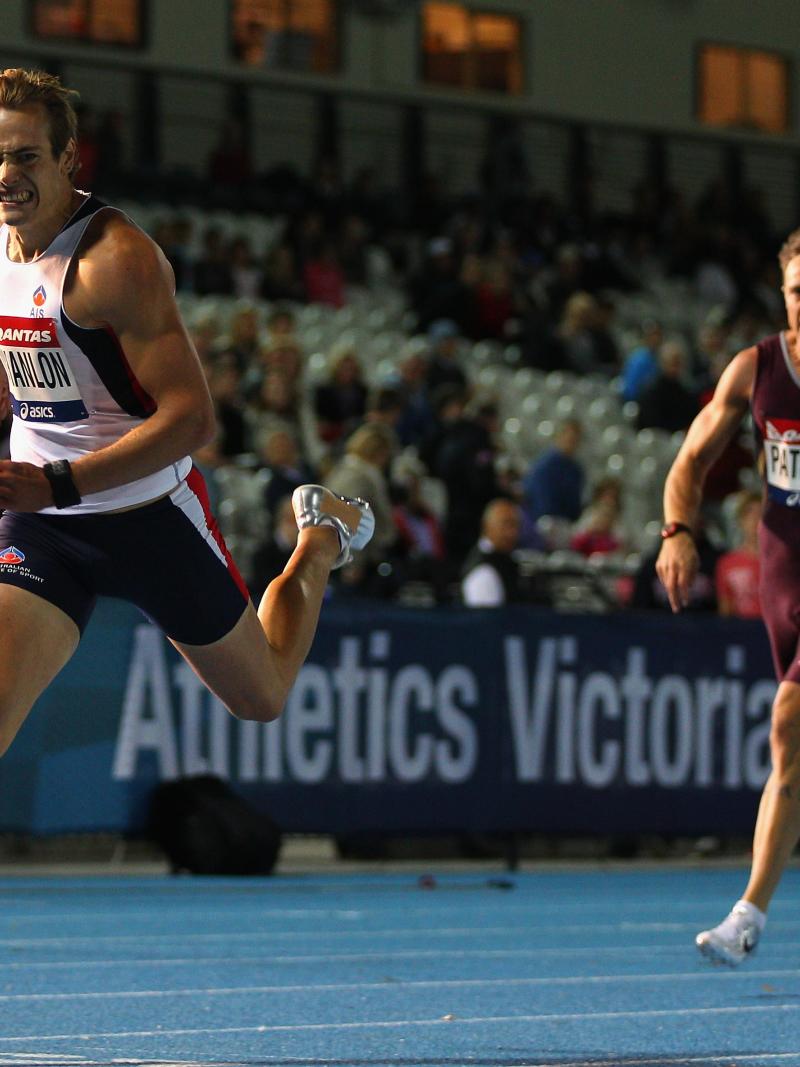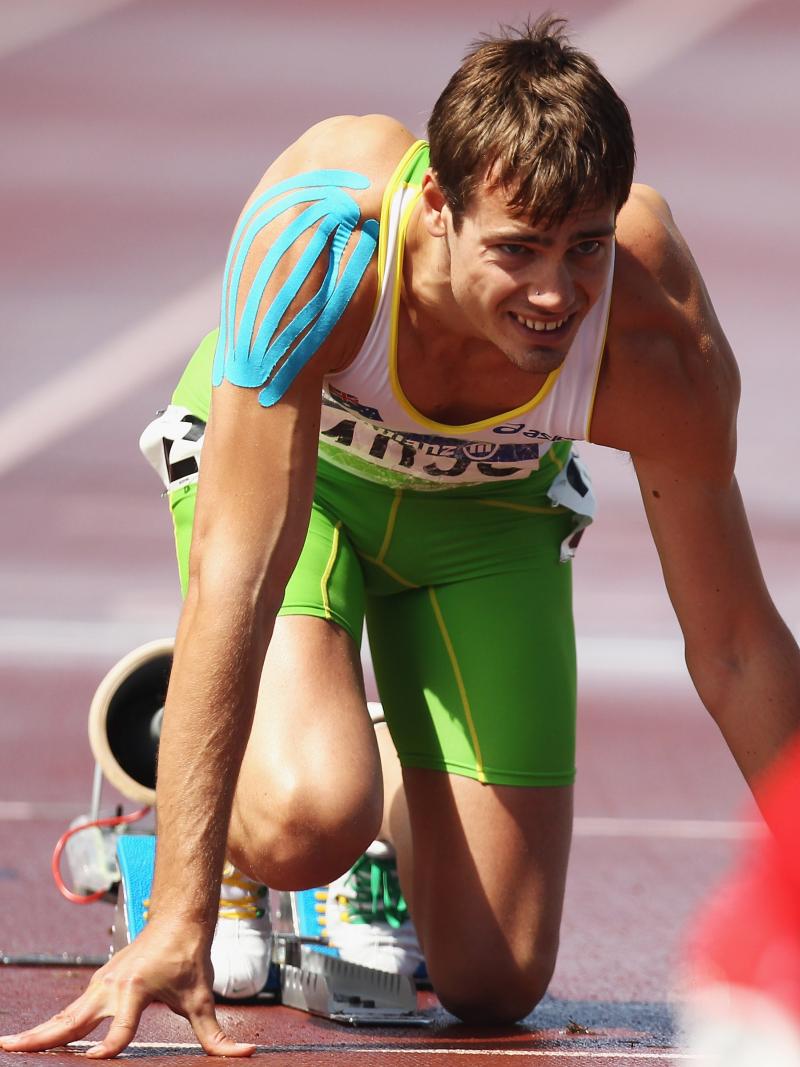Evan O’Hanlon: Self-Promotion Vital for Paralympic Athletes
Australia’s champion sprinter shares how athletes can help out national governing bodies in increasing their professional image. 04 Apr 2012
Evan O'Hanlon speaks to the media at the 2011 IPC Athletics World Championships in Christchurch, New Zealand.
In London, we will be a walking, talking and performing billboard for any company that has its logo on our apparel.
The Paralympic Movement is currently running at full speed toward the edge of a great precipice.
On August 29th, 2012, as the London Paralympic Games open, we will take our last step in that run up and our foot will plant itself on the very last patch of stable earth available.
This I can tell you with absolute certainty, but what happens next I can only guess.
This gap that we will attempt to bridge in the two weeks it takes to complete the Paralympic Games is a gap between where Paralympic Sport currently lies in the collective mind of the greater public and where we would like and deserve to be standing, as a fully-fledged professional sporting movement.
With each athlete in their own right being able to claim the rightful title of a professional athlete.
If you have read the feature article in the most recent edition of The Paralympian, “Out of the Shadows and into the Limelight,” then it is obvious to you that the International Paralympic Committee and the National Sporting Organizations around the world are striving to increase the perceived value of Paralympians and their performances as worthy of significant corporate sponsorship.
However, to change the mind of the general public is a monumental task and our sporting bodies cannot do it by themselves, they need our help!
We, the athletes, have an important role to play; all of us, not just some, must be the image of professionalism that the IPC and NSO’s are presenting.
We ALL need to live, train and perform as professionals. If our deeds can match the words of our governing bodies, we will jump as one in London and land safely on the other side.
We cannot expect this to be easy, but, if by our professionalism, we demand respect as a professional athlete rather than asking for it, then corporate sponsorship will follow.
In London, we must grab the hands of the world and drag it with us, kicking and screaming if need be into the paradigm that we create with our professional behaviour, our amazing results and inspirational stories.
As athletes, we need to help the IPC and our governing bodies to prove our corporate worth. This can be done in many ways, but the majority of it will be done immediately before, during and directly after our performances because this is when the camera will be on us, and this is when the world will be watching us.
Our sport organizations have worked hard to get us to London. They have raised the money to put us on the team, so make sure you thank them and their corporate sponsors with both your performances and interviews.
This seems to everyone like common sense, but in the moment it is often forgotten and without proper forethought can be missed.
An example in Track and Field of how proper forethought can and does increase the public opinion of an athlete and the perceived corporate value of their performance is that most able-bodied athletes competing at the top level are paid to wear a particular brand of shoes. Paralympians, on the other hand, are rarely sponsored in this way, with most of us still paying for the shoes we race in.
In London, we will be a walking, talking and performing billboard for any company that has its logo on our apparel.
If we are to take a professional approach to our sport, then we should not give away our advertising potential. By displaying the logos of brands that have not sponsored you or your national bodies, you are diluting the value of your performance for any current sponsor.
I now cover up the name and logo of any company that does not support me or the Australian Paralympic Committee on any piece of clothing or equipment that I use in order to prevent attribution of my performance to a company that is not directly helping me or the Paralympic Movement.
I simply use strapping tape to cover any of these logos because it covers the brand, but it also highlights the fact that I am deliberately covering that brand, as they do not provide sponsorship.
There are a number of corporate entities that do follow, support and promote Paralympic Sport, and we as athletes should help our governing bodies to thank these entities by thinking more about how we are presenting ourselves.

 Facebook
Facebook
 Instagram
Instagram
 Twitter
Twitter
 Youtube
Youtube



